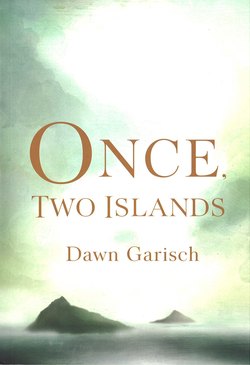Читать книгу Once, Two Islands - Dawn Garisch - Страница 12
На сайте Литреса книга снята с продажи.
ОглавлениеChapter Six
“Gulai!” The doctor banged his coffee cup down and glared at Frieda.
“It was her mother’s wish.” Not a lie, Frieda never told lies, and the ancestors had spoken.
“What kind of a name is Gulai?” The doctor stuck a finger behind his collar and tugged at it as though it was strangling him.
“It is a good Ongala name. It means born in the rainy season.”
“It sounds like a man digging in mud! Besides, she isn’t African!”
“She’s part African. So am I. So was her mother.”
“Hardly.” The doctor picked at his moustache irritably. “She never mentioned that name to me! Gail was the name we agreed to. It was Gail, you have made a mistake. It’s just a few of the letters swapped round. Look at her, she’s not a Gulai!”
* * *
So the baby had two names: Gail for the father, meaning father’s joy, and Gulai for the mother, meaning born in the rainy season. It was Gulai who sucked at Sophia’s breast every day until the milk came, and continued suckling for two months thereafter. Her crying stopped and the doctor told all who would hear how Gail had responded to the miracle of modern medicine, and they nodded their heads in agreement, knowing full well that his daughter drank witch’s milk every day, for it was no longer a secret. Often enough, Sophia would come to the doctor’s house to feed the child while the doctor was at work, and everyone could see how the baby grew fat and happy, full of ancestral magic and miracles.
There came a day that Frieda cut the cord around the baby’s belly and hid it away in an envelope, for she argued within herself that the child was now healthy and out of danger. The ancestors would understand, it was surely prudent to take only the risks that were strictly necessary. It’s true she lived with the worry that Sophia might discover the yarn’s absence; but there was no pleasing everyone, and Frieda knew it was a miracle that she had got away with what she had.
Yet there were those who shook their heads in the privacy of their own homes, or even in the tavern when the doctor was not there; no good could come of this situation in the long run, no good at all. No one ventured to inform the doctor about Sophia and Gulai – for who wants to be the bearer of unwelcome news, and while the weather is fair and mild, why rock the boat? Things will emerge in their own good time.
Why was it that the doctor was the last to know? Well, his mind was on many things, busy he was, keeping certain feelings at bay; and being the only doctor for several thousand miles around he was, fortunately, a busy man. After the funeral – a sad, windswept affair with Minister Alfred Kohler’s blessings tossed this way and that over the open grave so that the mourners heard only snatches – Orion filled up his spare time reorganising the hospital’s filing system. This was not his job, but he was a methodical man who understood the way things should work.
He was fortunate in that Sister Veronica was available to help him in her spare time. Often enough he came home late and a little drunk, having stopped off at Veronica’s for a bite to eat and stayed on longer than he had intended. It was a great solace to him that his assistant pointed no fingers; on the contrary, she relieved him of all blame, to the extent of suggesting, while she rubbed his shoulders, that he apply for a prominent post on the mainland. She never added, before it’s too late, but he knew that was what she meant: too long in the backwaters, and you would not be taken seriously by the mainstreamers. He knew this should be his next move, yet he could not act on it. Something stopped him, something tightened in him, preventing him from reaching out to open the envelopes containing monthly academic journals that arrived in batches by ship three or four times a year, with adverts for positions displayed in the back. He had lost his nerve, that thread that strings body and will together, and instead he was filled with a fear that he would be found out. Found out? What would be found out? That he was a fraud, if truth be told. That the error of his wife’s demise was not just a momentary slip, but a sign of something that underpinned his whole career; that he was not good enough for anything but a backwater where people did not know better, where his mistakes could be buried without an inquest.
Nevertheless, he was pleased that Veronica thought him good enough for the mainland, thought they were both too good for the island. He also liked the way her hands slid under his shirt, and the smell of her, a good, well-scrubbed smell. Before long he lay himself down on the comfort and support of her; he allowed himself to be consoled in the rocking cradle of her, her hands on his back absolving him in long strokes, telling him he was lovable, that he was not floundering, shipwrecked on some godforsaken shore, but up and sailing on the good seas; that satisfaction and prosperity and, yes, even ecstasy, were still visible on the horizon, still within his reach.
